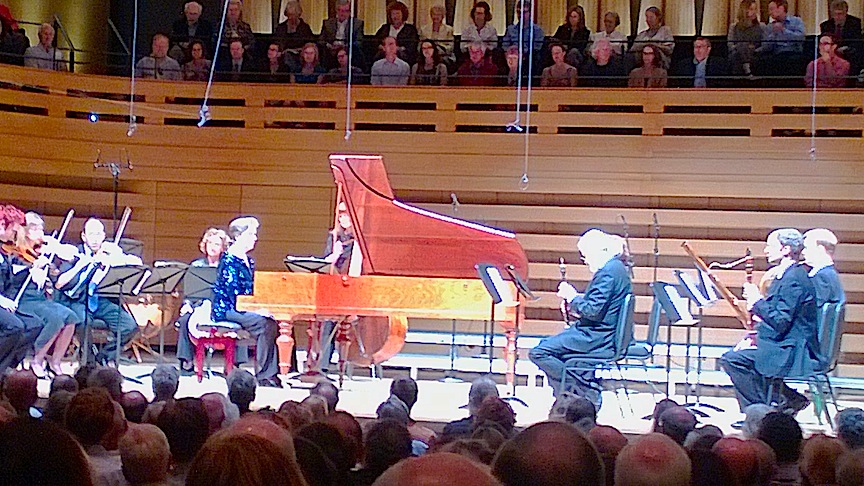
Tafelmusik is closing its 2012-13 season at Koerner Hall with a highly contrasted programme that pushes the period-instrument deeper into the 19th century. Its most successful element is the most intimate:
- Classical Music 101: What Does A Conductor Do? - June 17, 2019
- Classical Music 101 | What Does Period Instrument Mean? - May 6, 2019
- CLASSICAL MUSIC 101 | What Does It Mean To Be In Tune? - April 23, 2019
A performance by Janina Fialkowska of Frédéric Chopin’s Piano Concerto No. 2 with five string players and five wind players.
At the first of the week’s concerts, on Thursday night, Fialkowska’s portion of the programme turned into a transformative experience.
Chopin’s two piano concertos of the early 1830s are cornerstones of the repertoire, showpieces designed to showcase an easy virtuosity and poised musicality. The orchestration is a bit thin, to better help the modern concert grand dominate the music.
Fialkowska collaborated with the Chamber Players of Canada nearly a decade ago to record the Chopin concertos with a small ensemble of modern instruments. The resulting album remains my ideal of what this music should sound like: an easy mingling of instrumental voices marked by utter clarity and balance.
In a further spirit of adventure, Fialkowska showed up with Tafelmusik two seasons ago to perform the Piano Concerto No. 1 with period instruments. This week she tackles the other concerto, in a 2009 arrangement by Dutch composer Sylvia Maessen.
Maessen assigns an equal amount of work to both string and wind instruments — but the winds naturally overpower the strings, making for a slightly unbalanced orchestration.
Instead of a modern concert grand, Fialkowska is playing a perfectly restored (down to soft-iron period strings) grand piano made by the Parisian company Pleyel in 1848, a year before Chopin’s death. The muffled, mellow sound it produces sings a lot less than a much larger and beefier modern Steinway concert grand.
Here, then the soloist is reduced to a true equal collaborator with the other instrumentalists, putting Chopin’s virtuosic garlands of notes for the pianist in a completely different light.
The result on Thursday night was charming, but I would need to hear this several more times before committing to a verdict of like or dislike. It’s clear, however, that hearing the Chopin concerto in this context has the potential to rock a listener’s world.
The balance of this week’s programme is devoted to Ludwig van Beethoven’s musical dramatics: the Symphony No. 4 as well as the Coriolan and Egmont Overtures, conducted by longtime guest conductor Bruno Weil.
Thursday night’s performances were strong, nicely nuanced, but frequently a bit ragged (especially the Egmont) — a situation that is likely to improve with each performance until Sunday afternoon.
Details here.
John Terauds
- Classical Music 101: What Does A Conductor Do? - June 17, 2019
- Classical Music 101 | What Does Period Instrument Mean? - May 6, 2019
- CLASSICAL MUSIC 101 | What Does It Mean To Be In Tune? - April 23, 2019



